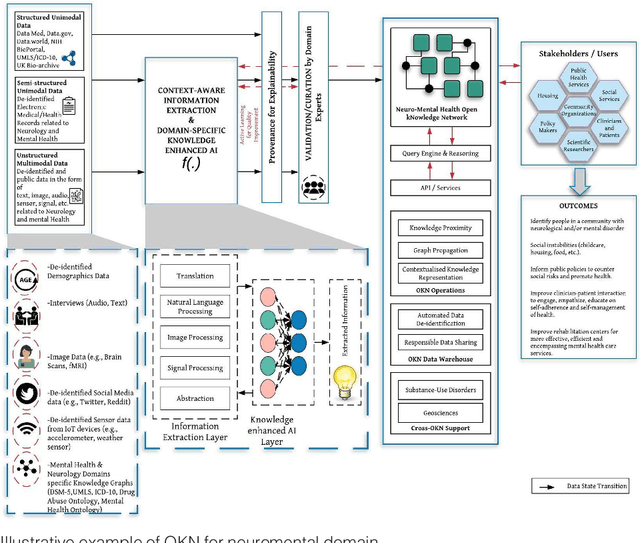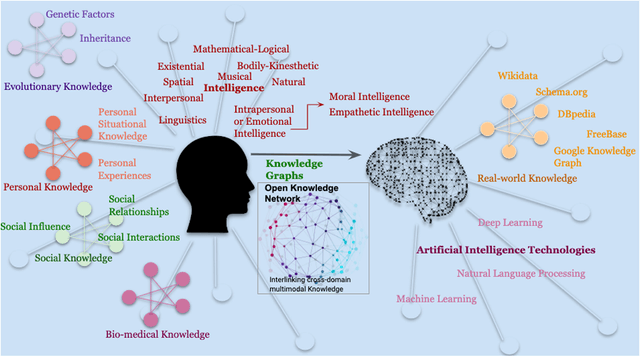Knowledge Graphs and Knowledge Networks: The Story in Brief
Paper and Code
Mar 07, 2020

Knowledge Graphs (KGs) represent real-world noisy raw information in a structured form, capturing relationships between entities. However, for dynamic real-world applications such as social networks, recommender systems, computational biology, relational knowledge representation has emerged as a challenging research problem where there is a need to represent the changing nodes, attributes, and edges over time. The evolution of search engine responses to user queries in the last few years is partly because of the role of KGs such as Google KG. KGs are significantly contributing to various AI applications from link prediction, entity relations prediction, node classification to recommendation and question answering systems. This article is an attempt to summarize the journey of KG for AI.
 Add to Chrome
Add to Chrome Add to Firefox
Add to Firefox Add to Edge
Add to Edge